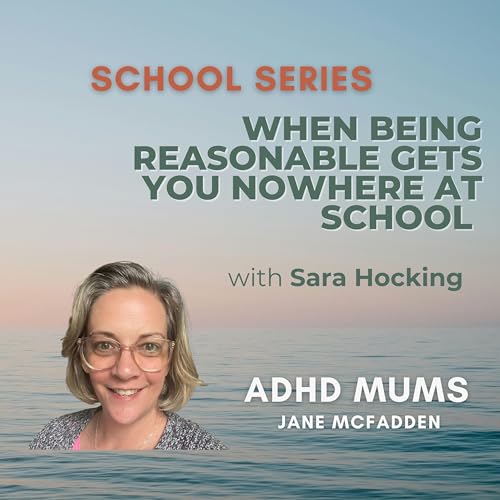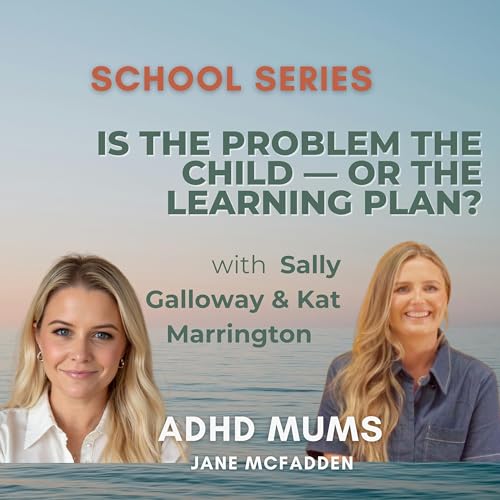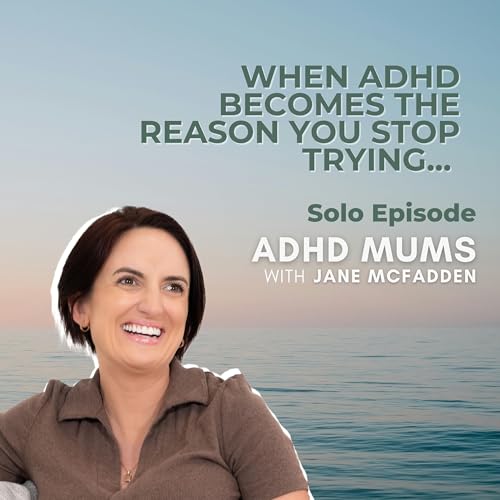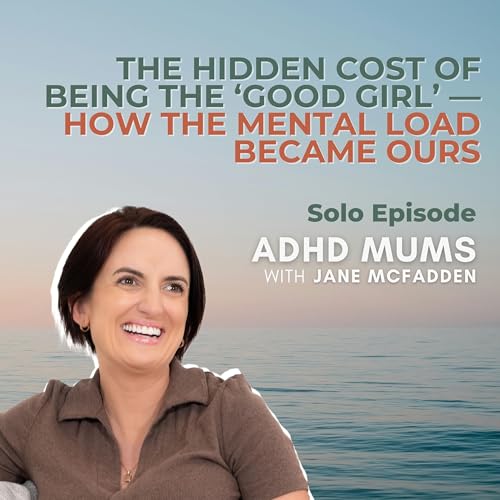This episode is for ADHD mums who feel like they’re living inside a nervous system experiment.
The kind where everything is technically ‘fine’… until the TV is on, someone’s making mouth noises, a child is asking 400 questions, another one is humming, and your body is trying to exit the situation through the nearest wall.
We talk a lot about overstimulation like it’s a personal flaw. Like you should be calmer. More patient. Better regulated. But what if you’re not failing at regulation… you’re just carrying too much regulation load?
In this conversation with Rachel Few, we get painfully practical about what actually helps when you’re at the edge. Not in an ideal world. In a real ADHD household, with real kids, real noise, real time pressure, and real limits.
WHAT WE COVER– Why overstimulation is not a single moment, but a build-up across days
– The ‘therapy taxi’ burnout cycle and how it dysregulates the whole family
– Why regulation strategies fail when they become another to-do list
– Nervous system mapping: learning your early warning signs before the snap
– ‘Recipe building’ for families: planning around needs, not just appointments
– Why yelling and snapping usually starts earlier than you think
– PDA-aware approaches: when direct help makes things worse
– Side-step regulation tools that don’t rely on compliance
– Real-life resets (including the candle trick, which sounds unhinged until you try it)
– Why acceptance is sometimes the missing strategy, not another technique
THIS EPISODE IS FOR YOU IF…– you feel overstimulated before 7am and then blame yourself for it
– your household escalates fast and you don’t know where it starts
– you’re carrying the clean-up after every meltdown (emotional or literal)
– you’re exhausted from scanning for hunger, sensory triggers, and ‘what could go wrong’
– you’re parenting a PDA-ish child and standard advice backfires
– you keep thinking ‘once we get the right support, it will all be fine’ and then it isn’t
– you want tools that actually work when you’re already at your limit
RELATED EPISODESSurviving the Mental Load of the School Year
https://adhdmums.com.au/podcast_episode/episode-63-surviving-the-mental-load-of-the-school-year/
When You Can’t Relax Even When It’s Quiet
https://adhdmums.com.au/podcast_episode/why-adhd-mums-cant-relax/
The ADHD Myth of ‘Just Try Harder’ (Quick Reset)
https://adhdmums.com.au/podcast_episode/episode-24-quick-reset-the-adhd-myth-of-just-try-harder/
RESOURCES & REFERENCES– For more information on Rachel Few - see here
-PANDA (Perinatal Anxiety & Depression Australia) is mentioned in the episode
– Maternal mental health research is referenced (mum’s mental health as a key predictor for child wellbeing)
LISTENER QUESTIONS & COMMUNITYSubmit a Listener Question (anonymous option)
If there’s something you want answered on the podcast, you can submit a question here — anonymously if you prefer.
https://form.jotform.com/251238118486864
Share Feedback or Topic Requests
Have a topic you’d like covered, or feedback you want to...
 35 mins
35 mins 34 mins
34 mins 44 mins
44 mins 37 mins
37 mins 14 mins
14 mins 55 mins
55 mins 28 mins
28 mins 27 mins
27 mins
